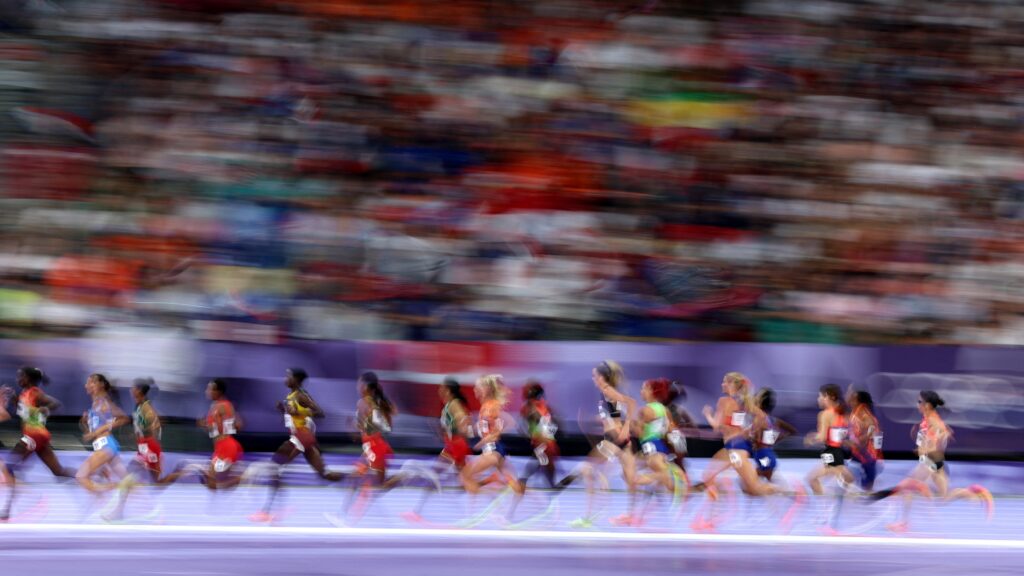Athletics gene testing is poised to become a permanent fixture in the world of sports, according to Sebastian Coe, president of World Athletics. In a recent statement, Coe cautioned that advances in genetic technology are rapidly transforming talent identification and training methods, signaling a new era where DNA analysis could play a critical role in athlete development. As the debate over ethics and regulation intensifies, the governing body is grappling with how to balance innovation with fair competition.
Athletics Gene Testing Gains Momentum Despite Ethical Concerns
As the science of genetics continues to evolve, the application of gene testing in athletics is gathering significant traction. Leading figures in sports administration acknowledge that such testing could become a standard tool to optimize talent identification and personalized training programs. Despite its promise for enhancing performance and injury prevention, the practice stirs intense debate over fairness, privacy, and the potential for genetic discrimination. Critics argue that gene testing risks creating a new form of elitism, where athletes are valued more for their DNA than their dedication and hard work.
Key ethical concerns include:
- Privacy infringement and unauthorized use of genetic data
- The reinforcement of genetic determinism over holistic athlete development
- Potential psychological impact on young athletes deemed “genetically unsuitable”
- Unequal access to gene testing technology that may widen the gap between nations
| Aspect | Potential Benefit | Main Concern |
|---|---|---|
| Talent Identification | Early detection of athletic potential | Overemphasis on genetics vs. skill development |
| Training Personalization | Customized training to prevent injuries | Privacy and data security issues |
| Competition Integrity | Level playing field monitoring | Ethical dilemma of gene editing possibilities |
Sebastian Coe Calls for Clear Guidelines to Regulate Genetic Screening
Sebastian Coe, the president of World Athletics, has emphasized the inevitability of gene testing within the sporting realm, urging for robust and transparent regulations to govern its use. As advancements in genetic technology accelerate, Coe warns that without clear-cut guidelines, the integrity of athletics could be compromised, potentially leading to unfair advantages or ethical dilemmas. He advocates for a collaborative approach involving scientists, policymakers, and sporting bodies to establish frameworks that balance innovation with fairness.
Key concerns highlighted by Coe include the protection of athletes’ privacy, prevention of genetic discrimination, and ensuring equitable access to technology. To address these, Coe proposes a set of core principles:
- Transparency: Mandatory disclosure of genetic testing methods and findings in elite competitions.
- Consent: Athletes must provide informed consent prior to undergoing any genetic screening.
- Regulation: Establishment of an independent body to oversee gene testing compliance and enforce penalties.
- Education: Providing athletes and coaches with clear information on the implications and limitations of genetic data.
| Aspect | Purpose | Impact |
|---|---|---|
| Privacy Protection | Safeguard personal genetic info | Prevents misuse and discrimination |
| Consent Protocols | Ensure informed participation | Empowers athlete autonomy |
| Independent Oversight | Monitor fair use of gene tests | Maintains sport integrity |
| Educational Initiatives | Increase awareness & understanding | Reduces misinformation |
Experts Urge Transparency and Athlete Education on Genetic Data Use
Leading voices in the sports community emphasize the necessity for clear guidelines and comprehensive education surrounding the use of genetic data in athletics. As gene testing becomes increasingly entrenched in talent identification and training optimization, concerns over privacy, consent, and potential misuse have prompted calls for robust transparency measures. Experts argue that athletes must be fully informed not only about the scope and purpose of genetic screening but also about how their sensitive information will be stored, shared, and protected.
To reinforce responsible practices, advocates suggest implementing standardized protocols that include:
- Mandatory pre-test counseling to explain potential outcomes and implications
- Clear consent frameworks outlining athlete rights and data control
- Regular audits to ensure compliance with ethical and legal standards
Additionally, the push for transparency extends to governing bodies and sports organizations, which are encouraged to publicly publish policies relating to genetic testing. The aim is to build trust and safeguard athlete welfare as the integration of genomics into sports science advances.
| Stakeholder | Role in Genetic Data Use | Key Responsibility |
|---|---|---|
| Athletes | Data Contributors | Informed Consent and Active Participation |
| Coaches | Interpreters & Strategists | Ensuring Ethical Application of Results |
| Sports Bodies | Regulators | Policy Development and Enforcement |
| Medical Experts | Advisors | Oversight of Data Accuracy and Usage |
Balancing Innovation and Fair Play Remains Key Challenge for Sport Authorities
As genetic testing technologies become increasingly sophisticated, sport authorities face a complex dilemma in integrating innovation while maintaining fairness. Sebastian Coe, President of World Athletics, has acknowledged that gene testing for athletic potential is no longer a futuristic concept but an established reality “here to stay.” This advancement offers opportunities to identify and cultivate talent from an early age, but it simultaneously raises significant ethical and regulatory concerns, particularly around privacy and the potential for genetic discrimination.
Sport governing bodies must establish clear guidelines to navigate this evolving landscape, focusing on:
- Transparency: Ensuring athletes understand how their genetic data is used and protected.
- Equity: Preventing genetic advantages from skewing competition fairness.
- Data Security: Safeguarding sensitive biological information against misuse.
- Ethical Oversight: Implementing independent bodies to monitor compliance and ethical standards.
| Aspect | Potential Benefit | Challenge |
|---|---|---|
| Talent Identification | Early detection of athletic potential | Risk of genetic profiling bias |
| Performance Enhancement | Custom training and recovery plans | Potential misuse in doping or manipulation |
| Privacy & Consent | Empowers athletes with data control | Concerns over data breaches and unauthorized use |
| Regulatory Compliance | Standardizes ethical practices globally | Difficulty in enforcement and variation in laws |
In conclusion, while genetic testing offers promising avenues in sports for optimizing athlete potential and care, it necessitates carefully crafted policies and ethical frameworks to ensure that the integrity of sport is preserved. Continuous dialogue among stakeholders, education around genetics, and robust oversight mechanisms will be essential to balancing innovation with fairness.
If you want me to help you with anything else related to this topic or format, please let me know!
To Wrap It Up
As athletics continues to evolve at the intersection of science and sport, Coe’s warning underscores the complexity of integrating genetic testing into competition and athlete development. While ethical and regulatory challenges remain, the persistence of gene testing suggests it is poised to become a permanent, if controversial, feature in the world of athletics. Stakeholders across the sporting landscape will need to adapt, ensuring that innovation does not compromise the integrity and fairness that define competitive sport.





